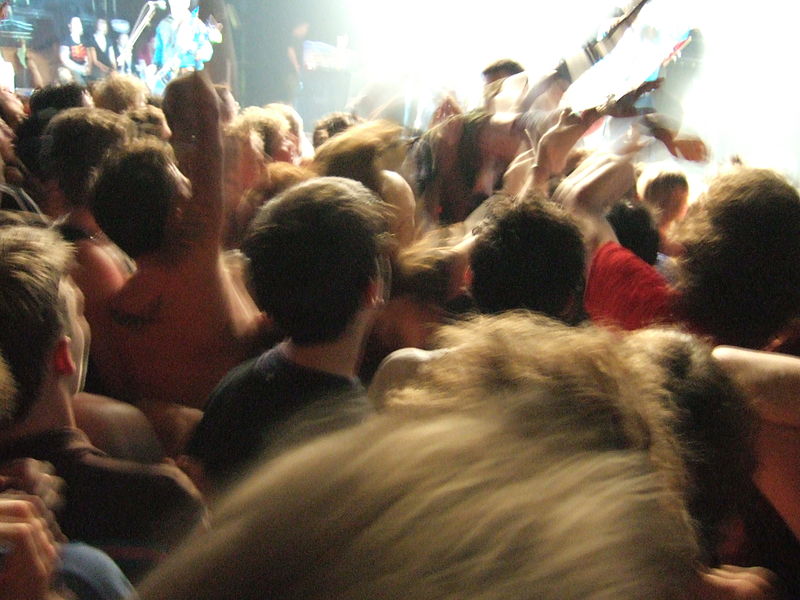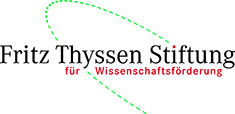Pop Cultures and Ecstatic States of the Body, 1950s-1980s
The international conference “Pop Cultures and Ecstatic States of the Body, 1950s-1980s,” which will take place at the University of Copenhagen from September 30 until October 2, 2021, gathers more than 20 scholars from four continents to shed light on the manifold historical entanglements between pop cultures and ecstatic bodies. Embracing pop culture studies as well as the history of bodies, our conference opens up a dialogue between experts from two research fields and, thus, aims at establishing a new perspective on contemporary history that uses the corporeal dimensions of different forms of ‘losing it’ as a lens for studying the social and cultural politics of ecstasy.

During the 1950s, pop cultures became a phenomenon on a global scale. From the beginning, ecstatic states of the body – caused by the use of substances, by experimenting with different sorts of sexuality, by immersing into music and dancing, by reaching out to religion and spirituality – played an important part in pop cultures. Pop cultures and ecstatic bodies often depended on and referred to each other. States of ecstasy and trance, on the one hand, constituted driving forces in the shaping and the development of pop cultures. On the other hand, pop cultures created and spread new types of ecstasies and new practices of getting ecstatic.
Relying on concepts of ‘doing ecstasy,’ ‘controlling ecstasy,’ and ‘representing ecstasy,’ the conference examines important aspects of the entanglement between pop cultures and ecstatic bodies. Case studies include, e.g., punk music, Hollywood films, and marijuana usage, and they range geographically from Europe and North America to India or Nigeria, together exploring the role of gender, race, age, spaces, travelling, and various other aspects related to the corporeal dimensions of ‘getting high.’
If you are interested in joining the conference, please register by writing an email to ecstatic_pop_cultures@gmx.de.
Conference programme
| 13:00 | Opening of the conference by the organizers, greetings |
| 13:30 | Panel 1: Framing Ecstasy
Chair: Detlef Siegfried (University of Copenhagen) Kristoff Kerl (Feodor Lynen-Fellow/University of Copenhagen): Pop Ecstasies. Reflections on Ecstatic States of the Body in the History of Pop Cultures. |
| 14:00 | Commentary by Bodo Mrozek (Berlin Center for Cold War Studies) and discussion |
| 15:00 | Break |
| 15:30 | Panel 2: Doing Ecstasy 1: Gender
Chair: Carl-Henrik Bjerstrom (University of Copenhagen) |
| 16:45 | Commentary by Joana-Isabel Duyster Borreda (University of Copenhagen) and discussion |
| 17:30 | Break |
| 18:00 | First Keynote:
Chair: Robert P. Stephens (Virginia Polytechnic Institute and State University). Julia Sneeringer (City University New York): From Bare Bulbs to Liquid Light Shows. Music Club Environments in Hamburg-St. Pauli across the 1960s. |
| 19:00 | Discussion |
| 20:00 | Uhr: Conference Dinner |
| 09:00 |
Panel 3: Doing Ecstasy 2: Travel Chair: Daniel Steinbach (University of Copenhagen) Joshua Hill (University of St. Andrews): Spanish ‘Jippies‘, Marijuana, and the Creation of a Moral Panic under Franco’s National Catholicism. Isabel Richter (University of Berkeley): ‘Drifting into Uncertainty‘. World Music, 1960-1980. |
| 09:45 |
Commentary by Michael Alexander Langkjaer (University of Copenhagen) and discussion |
| 10:30 | Break |
| 11:00 | Panel 4: Doing Ecstasy 3: Spaces Chair: Kristoff Kerl (University of Copenhagen) Ralph Höger / Sebastian Knoll-Jung (University of Heidelberg): Ecstatic Violence. Pogo Culture and the Body Turn in Gig Practices from Protopunk to Hardcore. Nikolai Okunew (The Leibniz Centre for Contemporary History - ZZF Potsdam): Ecstatic Escapism. Heavy Metal Concerts in East Germany. Bob Beach (University at Albany, SUNY): „My whole body’s sent, I feel like a millionaire.“ Ecstasies (and Agonies) of Cannabis Intoxication in Jazz-era Tea Pads, 1930-1950. |
| 12:15 |
Commentary by Holger Schulze (University of Copenhagen) and discussion |
| 13:00 | Lunch break |
| 15:00 |
Panel 5: Controlling Ecstasy Chair: Ana Antic (University of Copenhagen) |
| 16:15 | Commentary by Florian Schleking (University of Cologne) and discussion |
| 17:00 |
Pause |
| 17:30 |
Second Keynote Chair: Olaf Stieglitz (Leipzig University). Juliane Fürst (Leibniz-Zentrum für Zeithistorische Forschung Potsdam): Ecstasy as Prayer and Salvation. Soviet Hippies and their Kaif |
| 18:30 |
Discussion |
| 19:00 |
Snacks and drinks |
| 10:00 | Panel 6: Representing Ecstasy in the Media
Chair: Tobias Wung-Sung (University of Copenhagen) Karl Siebengartner (Ludwig Maximilian University of Munich): Unruly Bodies. Punks, Ecstasy and Pop Culture in Western Germany. |
| 11:15 | Commentary by Ana Vera (University of Copenhagen) and discussion |
| 12:00 | Break |
| 12:30 | Closing discussion |
| 13:30 |
Farewell |
Kristoff Kerl (University of Copenhagen)
Detlef Siegfried (University of Copenhagen)
Robert P. Stephens (Virginia Polytechnic Institute and State University)
Olaf Stieglitz (University of Leipzig)
Funding


Map of South Campus
View directions.
View on map of the Faculty of Humanities - South Campus.
View map of South Campus (pdf).
